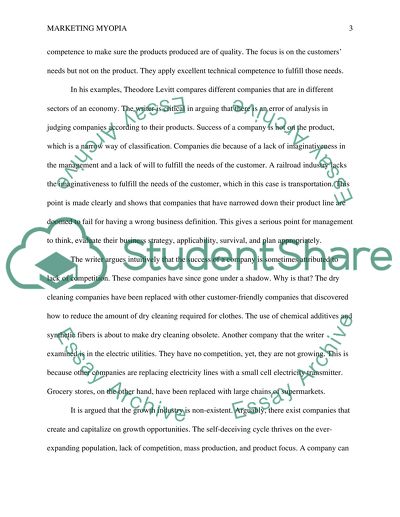Cite this document
(“Marketing Myopia Essay Example | Topics and Well Written Essays - 750 words”, n.d.)
Retrieved from https://studentshare.org/marketing/1460575-marketing-myopia
Retrieved from https://studentshare.org/marketing/1460575-marketing-myopia
(Marketing Myopia Essay Example | Topics and Well Written Essays - 750 Words)
https://studentshare.org/marketing/1460575-marketing-myopia.
https://studentshare.org/marketing/1460575-marketing-myopia.
“Marketing Myopia Essay Example | Topics and Well Written Essays - 750 Words”, n.d. https://studentshare.org/marketing/1460575-marketing-myopia.


